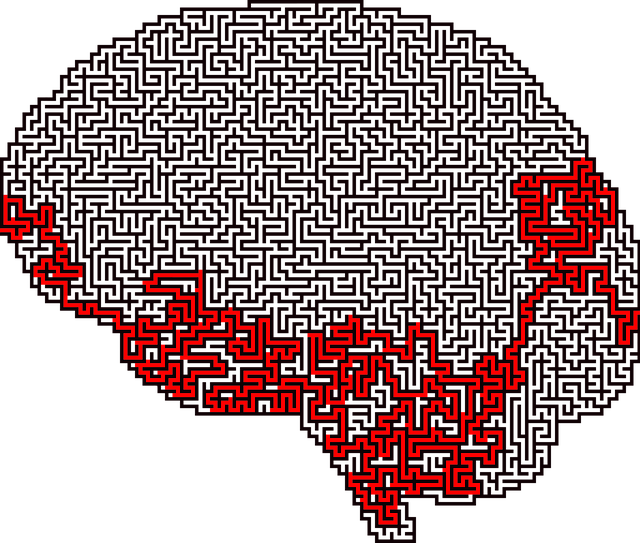Understanding Aurora Panic Disorder (APD) and Anxiety Attacks Therapy requires gathering comprehensive mental health data through clinical records, surveys, and self-reporting tools, using standardized assessment tools for integrity. Public Awareness Campaigns increase open sharing of experiences, enriching datasets. Advanced statistical modeling and machine learning techniques analyze genetic predispositions, environmental factors, and cognitive processes to develop personalized treatments, integrating compassion cultivation and mood management. Rigorous data interpretation ensures tailored interventions, fostering emotional regulation skills and promoting mental well-being for individuals with APD and anxiety attacks.
Mental health data analysis is a powerful tool for understanding and improving patient outcomes, especially in addressing prevalent conditions like Aurora Panic Disorder and Anxiety Attacks. This article delves into the intricacies of mental health data collection and preparation, exploring advanced techniques to analyze these disorders. We discuss how interpretation leads to evidence-based therapies, highlighting best practices for optimizing patient care and overall well-being. By understanding data, we can revolutionize Aurora Panic Disorder and Anxiety Attacks therapy, offering hope and improved lives for those affected.
- Understanding Mental Health Data: Collection and Preparation
- Analyzing Aurora Panic Disorder and Anxiety Attacks: Techniques and Insights
- Interpreting Data for Effective Therapy and Patient Outcomes
Understanding Mental Health Data: Collection and Preparation

Understanding Mental Health Data involves a meticulous process of data collection and preparation, especially when delving into specific conditions like Aurora Panic Disorder and Anxiety Attacks Therapy. The first step is to gather comprehensive data through various channels—clinical records, surveys, and self-reporting tools. This data includes symptoms, treatment outcomes, and demographic information. Proper preparation ensures that the data is clean, accurate, and consistent, removing any irrelevant or duplicate entries. Standardized data collection methods, such as using recognized assessment tools, are crucial for maintaining integrity and facilitating meaningful analysis.
In today’s world, Public Awareness Campaigns Development and Mental Health Awareness initiatives play a pivotal role in gathering this data. By fostering empathy through effective communication strategies, these campaigns encourage individuals to share their experiences openly. This increased participation leads to richer datasets, enabling researchers and therapists to develop more tailored interventions for conditions like Anxiety Attacks Therapy. The ultimate goal is to improve diagnosis, treatment plans, and overall care for those struggling with mental health challenges.
Analyzing Aurora Panic Disorder and Anxiety Attacks: Techniques and Insights

The analysis of Aurora Panic Disorder (APD) and anxiety attacks involves sophisticated techniques to gain valuable insights into their causes and effects. Researchers employ various data analysis methods, including statistical modeling and machine learning algorithms, to understand the complex interplay between genetic predisposition, environmental factors, and cognitive processes. By studying patterns in symptoms, triggers, and responses to treatment, mental health professionals can develop more personalized and effective therapies for APD and anxiety attacks.
Compassion cultivation practices, self-awareness exercises, and mood management techniques have emerged as powerful tools within the context of APD therapy. These approaches encourage individuals to cultivate empathy, mindfulness, and emotional regulation skills, which can help reduce the intensity and frequency of panic attacks. Through rigorous data interpretation, therapists can tailor these interventions to address specific needs, fostering a more compassionate and self-aware mindset that promotes resilience and overall mental well-being.
Interpreting Data for Effective Therapy and Patient Outcomes

Interpreting mental health data is a critical step in delivering effective therapy and enhancing patient outcomes. By analyzing patterns within individual cases, therapists can gain valuable insights into a patient’s condition, such as the frequency and triggers of anxiety attacks or panic disorder episodes. This data-driven approach allows for more personalized treatment plans tailored to each patient’s unique needs. For instance, identifying specific stressors related to Aurora Panic Disorder can guide therapists in incorporating targeted techniques like cognitive-behavioral therapy (CBT) or mindfulness practices to manage symptoms effectively.
Cultural sensitivity in mental healthcare practice plays a pivotal role in this process. Understanding cultural contexts and backgrounds helps interpret data accurately and ensure patient comfort. Therapists skilled in conflict resolution techniques can navigate sensitive topics, fostering open communication. This, in turn, enhances the reliability of collected data, enabling providers to offer tailored anxiety relief strategies. Such personalized interventions have been shown to significantly improve patient outcomes and satisfaction levels.
Mental health data analysis and interpretation are powerful tools that can significantly enhance our understanding of conditions like Aurora Panic Disorder and Anxiety Attacks. By employing advanced techniques, we gain valuable insights into patient experiences, enabling more effective therapy strategies. Through meticulous data preparation and thoughtful interpretation, healthcare professionals can improve patient outcomes, ultimately fostering better mental well-being for those suffering from these disorders. With continued advancements in data analysis, the future of Aurora Panic Disorder and Anxiety Attacks therapy looks promising, offering personalized and tailored support to those who need it most.














